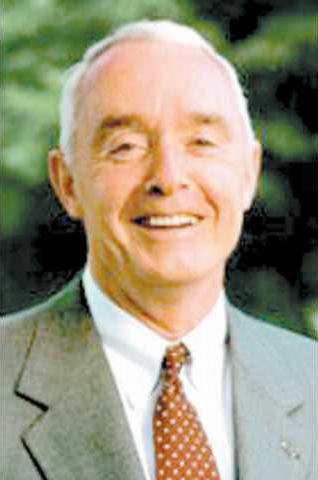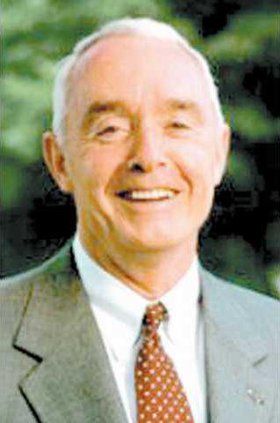Decision doesn't bother some residents
By Alena Parker
Tuesday’s announcement to scratch plans for another brigade may have riled local and state leaders, but didn’t seem to faze most Liberty County residents.
“You know what, I am so busy right now with the people that are here that it didn’t really bother me either way,” said Traci Kuhaneck, a 10-year resident who manages the Flash Foods on Highway 84.
State Rep. Al Williams said the Army unjustly reneged on a promise, but James Frasier thinks “what’s going to be is going to be.”
“They have the right to do whatever they want to do,” Frasier said. “That’s the way life goes.”
He does not think the community was really prepared for the 10,000 new soldiers and families.
“They ain’t ready for all that,” Frasier said. “Hinesville is too small for all those people. You’re trying to squeeze Savannah in Hinesville.”
Frasier owns Master J’s Barber Shop on Gen. Stewart Way.
“Look at traffic now. Traffic is backed up now,” Frasier said around 1 p.m. yesterday. “You don’t have room for what’s here now.”
“Trying to drive in this town is hectic,” agreed Corrine Crivello.
The city has moved forward with road improvements, including completing the first leg of its Frank Cochran widening, a $10.1 million project, going toward the Fort Stewart gate, in preparation for more traffic.
But that needed to be done anyway, according to Crivello who lives off Frank Cochran.
“Even now, it’s still hard getting in and out of,” Crivello said.
Terry Doyle, Liberty County Citizens Advisory Committee chairman, fears government may be forced to hike the taxes now.
“They went out and said we needed $51 million in the SPLOST tax and part of the justification for increase in SPLOST was the troops coming in,” Doyle said.
“The thing that really hurts me the most now all of this is going to have to be paid by the taxpayers and there’s not going to be as many taxpayers to foot the bill.”
“They gambled with our money. That I have a problem with,” agreed John Henderson.
“The county has invested money that we’re going to have to pay,” Henderson said, highlighting the commitment to a new $20 million middle school. “I think that was a very bad move.”
After working for the Army for 34 years and seeing several big plans botched, Henderson does not think leaders should have been surprised.
“The Army does not make decisions, always, based on the most logical thing. There’s a lot of politics involved in it,” Henderson said.
Donnie Daughtery, a recent transplant, thought the decision made sense, considering the community’s capacity.
“When you get all those soldiers, the community looks at it as money and profit, but crime comes with it,” Daughtery said. “Keep it small.”
Willie Wynn thought the community missed a great opportunity.
“It would’ve made Hinesville grow,” Wynn said. “Once they get here, then things would pick up…because you got that money coming in.”
“I think the impact of the brigade not coming is going to have a significant impact, but at the same time I think the citizens need to understand that the needs of the military must always come first because they’re defending our freedom,” said Doyle, an Air Force retiree.
The decision was made public Tuesday in a memo from U.S. Army Secretary Pete Geren to Congress. It reverses a plan to bring a 5th Brigade Combat Team to Fort Stewart, which would have brought 3,500 soldiers and nearly 6,000 family members and civilian support in the area.
The locals say they had been guaranteed the growth.
“We plan to fight,” Hinesville Mayor Jim Thomas said upon hearing the news Tuesday. “We’ve got to get to Congress to show them that we were promised that we would get this brigade and they (the Department of Defense) have broken that promise to us.”
However, some say exchanging blows with leaders in Washington, might not be what is best for soldiers, the country or the county.
“First of all, whether we agree with Secretary Gates or not, he is in a position where, for the first time in 10 years, we have a secretary that is enormously respected and trusted by the nation’s leadership and who has a coherent strategy to defend the country,” said Gen. (ret.) Barry McCaffrey during a telephone interview Thursday. “This is good news for America and he has immense standing with the Congress.”
What local leaders need to do now, according to the former Fort Stewart commanding general, is “accept his decision and move forward.”
“It still leaves Fort Stewart and Hunter as a major concentration of U.S. Army combat power,” McCaffrey said. “There is no question that Fort Stewart remains the most attractive training and deployment platform in the country. I would anticipate continued growth and also anticipate the Guard and Reserve will, over time, find Fort Stewart and Hunter as one of the most attractive training options.”
Still, optimists here are hard to find as county officials and business leaders point to the nearly $451 million that has already been spent on accommodations needed for the projected troop increase.
Phyllis Isley, director of the Bureau of Business Research and Economic Development at Georgia Southern University, said the concerns are justified.
“Locally, it is likely that there will be some short-term excess in local housing because of the buildup of development and that will certainly complicate and extend the local recession, as well as increase stress on banks and development as a result of some excess inventory,” she said.
The decision, Isley said, will not only hit hard locally, but will also affect markets region-wide.
“The reality is that that is what the free market is about,” she said. “There are always risks involved.”
Steven Harter said he and his community, the small New York town of LeRay, where Fort Drum is, are no strangers to the challenges associated with botched plans and expected military growth.
Harter works as the administrative clerk to the supervisor of LeRay.
He said he and his town have experienced similar situations.
Although Harter admits the Army has always made good on its plans for his community, he said there were times when they did not know what was coming or going.
“Several years ago we had the last year of the BRAC (Base Closure and Realignment Commission) and right when they were looking at expanding our base there was another committee looking at closing our base. That is a real challenge,” he said.
“All I can say is that politics can be strange sometimes,” he said. “You have to trust your military leaders and legislative leaders to help you work through this. That’s what it is all about.”
“The Army looks at it as what’s best for the military and hopefully those two things will come together.”



